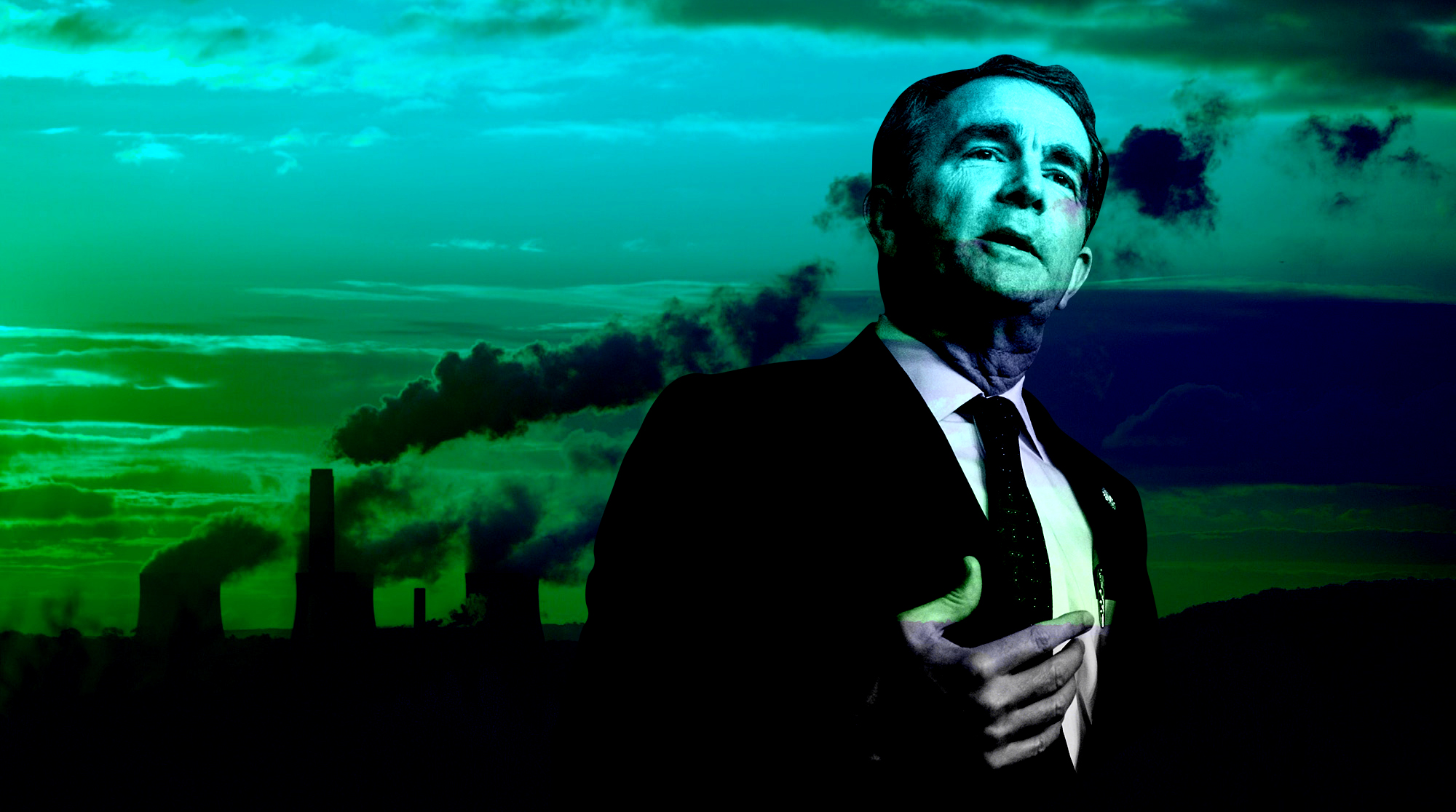Virginia Governor Ralph Northam became a household name after a yearbook photo of him donning blackface surfaced just months into his term. Northam subsequently held a press conference in which he denied being in the racist photo but admitted to wearing blackface at a “Michael Jackson dance contest”, leading to widespread calls for his resignation.
Despite immense pressure from both sides of the aisle to step down, however, Northam never resigned. Instead, as other top Virginia officials battled their own controversies, Northams’ somehow blew over, and he went back to quietly governing the state of Virginia.
Democrats who had fervently called for his resignation moved on, hoping that, at the very least, the embattled governor would continue championing progressive causes, like a $15 minimum wage and Virginia’s entry into the Regional Greenhouse Gas Initiative (RGGI).
But that all changed on May 2nd, when Northam signed a new state budget without vetoing a provision that barrs the state from joining RGGI. While House Speaker Kirk Cox thanked the Governor for his “deference”, environmental groups (justifiably) denounced him.
Wait — what happened?
In short, Virginia’s GOP-controlled General Assembly continued long-standing efforts to block the state from joining RGGI. The cap-and-trade program, regulating electric sector pollution in nine Northeastern and Mid-Atlantic states, has resulted in significant emission reductions in the region and invested more than $3 billion in energy efficiency and renewable energy efforts. For several years now, Virginia has been planning to join.
Last month, however, Virginia’s legislature included a provision in next year’s budget that prohibits state dollars from being spent to “support membership or participation” in RGGI, effectively barring program administration. Northam signed the budget, noting his “extreme disappointment.”
So, Northam had no choice but to accept the budget, right?
Not really. What’s shocking is that Gov. Northam had the legal authority to veto this detrimental line-item, but ultimately opted not to. The line-item veto authority for appropriation bills was added to the state constitution in 1902, so that a governor no longer had to veto an entire budget in order to address one specific conflict.
Northam is not only aware of this power, but used it in this very budget to veto a separate provision relating to contraception funding. So, the notion he had no choice but to sign the budget with the RGGI prohibitions is incredibly misguided.
“Although members of the General Assembly should never have inserted this provision into the budget, Governor Northam was given the opportunity to strike it and fight for this program,” said Nate Benforado, an attorney at the Southern Environmental Law Center.
Can we start from the beginning?
Northam campaigned on the promise of strong climate action, pledging to make Virginia the first Southern state to participate in the emission-reduction program. After he was elected in 2017, he and then-Governor Terry McAulife (D) proposed a joint legislative agenda that would allow the state to move forward with RGGI, giving the General Assembly “an opportunity to weigh in on how the revenue is allocated.”
But Republicans, holding a three-seat majority in the General Assembly, fiercely opposed the state’s entry in the cap-and-trade program. In January 2019, GOP lawmakers introduced a bill (HB 2611) prohibiting the state from program participation, that after passing through both the House and Senate, was vetoed by the Governor.
More good news came in April, when the Virginia Air Pollution Control Board approved a new regulation to cap and reduce carbon emissions from large fossil fuel electric power generating facilities by 30 percent by 2030. The move made Virginia the first Southern state — and the first formerly coal state — to adopt climate pollution regulations. It also meant that Virginia was on track to join RGGI by 2020.
Not anymore though. This budget debacle ensures Virginia won’t join this year, something that was much-anticipated and perhaps even taken for granted in some circles. Instead, the state’s entry will likely be delayed until 2021, assuming next year’s budget doesn’t contain the same restriction.
Why does it matter?
The environmental and economic consequences of this decision are severe. Had Virginia joined RGGI, the state would have agreed to cap carbon emissions at 28 million tons in 2020, and reduce them by 3% annually over a decade. It’s estimated Virginia would have earned $75 million from RGGI auctions, that could have been invested in energy efficiency and other consumer benefit programs. Additionally, as Virginia’s coastal communities face rising sea levels, a portion of the money would have likely been invested in a coastal resilience fund.
How did the environmental community respond?
Environmental groups blasted Northam’s decision to forgo the veto:
“This was a disastrous and cowardly retreat by Northam,” Walton Shepherd, the Virginia policy director for the Natural Resources Defense Council, told the Washington Post. “Instead of protecting Virginians with his clear veto authority, he rolled over, not only for big polluters, but also for a climate-denying fringe of the legislature.”
“Virginians elected Northam, in part, because he promised to take serious climate action. Today, he failed to live up to that promise,” Michael Town, executive director of the Virginia League of Conservation Voters, said in a statement. “We are incredibly disappointed with Northam’s failure to push back against House Republicans’ attempts to stand in the way of his administration’s signature climate policy.”
“Governor Northam’s failure to veto the budget amendments that impede climate action represents another broken promise from this administration,” said Kate Addleston, Sierra Club Virginia Chapter Director, in a statement.
Environmental Quality Board officials, however, defended Northam: “The Governor did not make a decision to not join RGGI,” said Chris Bast, the chief deputy of the EQB, in an interview with Climate XChange. “This was not a proactive decision by the administration — this is the General Assembly legislating via the budget.”
But the reality is that Northam promised to be a climate champion, reiterating in his gubernatorial campaign that he understood the urgency of the climate crisis and dire need for action. He could have vetoed the RGGI prohibition from the budget, and the state could have begun to drastically reduce electric sector emissions. Instead, he folded in the face of GOP pressure.
Gov. Northam should have resigned in the face of the February scandals — even the Democratic Party of Virginia demanded he do so. His ability to lead Virginians is compromised, and his promise to fight against the most pressing crisis of our time is unsubstantiated.
The IPCC has made it clear that we have 12 years to limit climate change catastrophe. We simply don’t have time for more delays and obstructions. Gov. Northam, we’re just about done.









